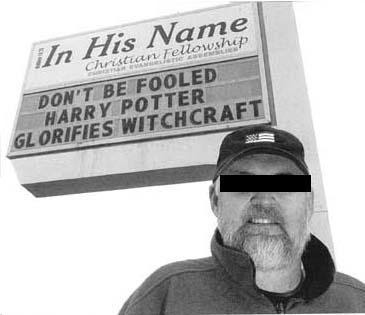Christian culture says that the use of magic and sorcery in the Harry Potter series interests kids in witchcraft. Lots of churches have banned Harry Potter books and costumes, should you be attending a Halloween-alternative fall festival. In the grand tradition of Christian culture they’ve even made their own version of the books as an edifying rendition of the original.
These Harry-phobes happen to approve heartily of The Chronicles of Narnia and the Lord of the Rings trilogy although these also use magic and mysticism. Many of the churches who are anti-Harry have taken groups of kids to see “The Lion, The Witch and The Wardrobe” (hi, it has the word witch in the title). The White Witch uses, guess what, white magic. Aslan’s deep magic eventually wins out, but all of this magical mayhem is okay because Lewis was a lauded Christian apologist. Even though Tolkien was Catholic, Christian culture embraces LOTR and sees allegory in it.
Harry Potter objectors say the fundamental difference between Hogwarts and Narnia/Hobbiton is that the authors of the latter were professing Christians. J.K. Rowling has made statements of faith as well but Christian culture doesn’t really buy it. They seem to feel that if she is not forthcoming with a specific mission statement then her use of allegory isn’t valid. They seem to think her books actually can’t contain any spiritual allegory, only sneaky promotion of the occult.

Christian culture isn’t able to reconcile violence and beauty very well when it comes to stories and allegories outside of the Bible. But judging from the use of symbols and sacraments in the Bible it would seem that God loves symbolism. Christian culture is hesitant to find beauty in places that aren’t sanctioned as overtly Christian. But if the Christ story is as momentous and all-encompassing as his followers claim to believe, then might they also believe that all stories echo the redemption story?




